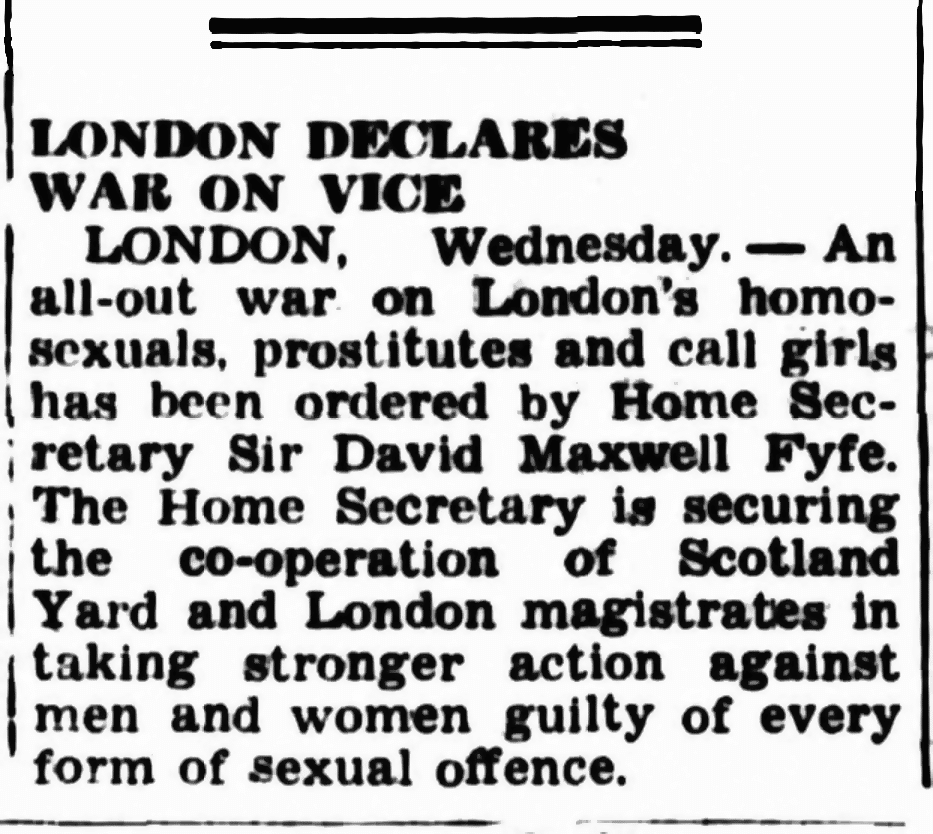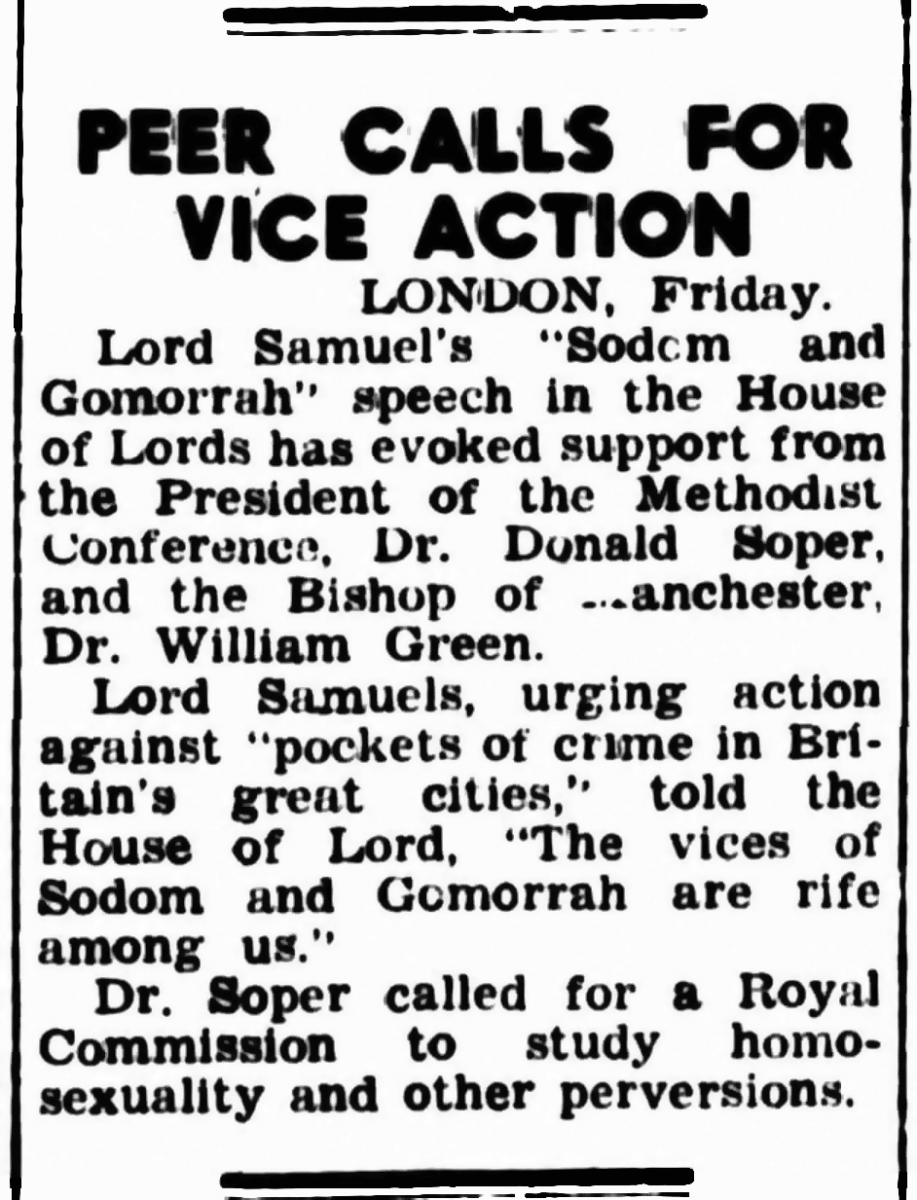This year saw an extraordinary outburst of anti-gay panic in the British press which was to contribute, surprisingly enough, to a process by which the lives of British homosexuals (and those of many other countries) would actually be improved.
As Patrick Higgins, in his meticulously researched (if somewhat extravagantly titled) history of British law reform, Heterosexual Dictatorship, has pointed out; ‘In a six-month period beginning in October 1953 more space was devoted to homosexuality in the British press than in any period since the trials and conviction of Oscar Wilde during 1895’. During that time three high-profile cases involving apparently respectable men, soldiers from the elite Guards regiments, cash and gifts, all-male orgies, bamboo canes, drummer-boys, dirty pictures, titillated the public on an almost daily basis. Other cases exposed actors, film directors, members of parliament and even junior ministers, churchwardens, accounts clerks and schoolmasters engaging in unspeakable behaviour in public lavatories, public parks, army barracks, holiday hotels and lodgings.
The effect upon the public was to create an unsettling sense that the highest places, no less than the respectable middle orders, in society had been captured by the forces of debauchery and depravity, represented above all by male homosexuals. The press, the police force and the politicians agreed – Something Had To Be Done.
The government inquiry that resulted – chaired by John Wolfenden – moved slowly, but in the end its conclusions were clear: homosexuality between consenting adults in private should be decriminalised. Not, perhaps, what the panic had been intended to produce.




